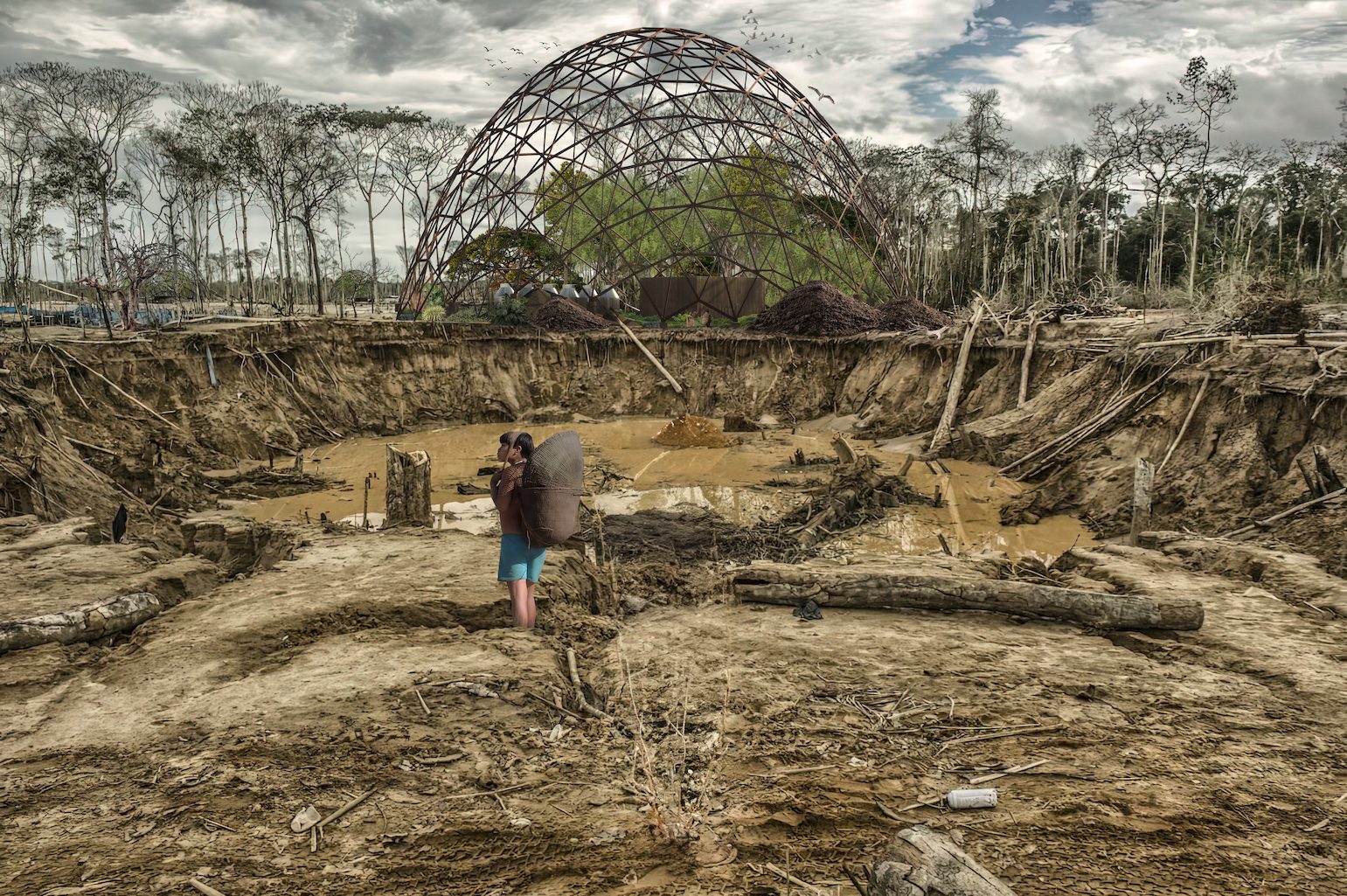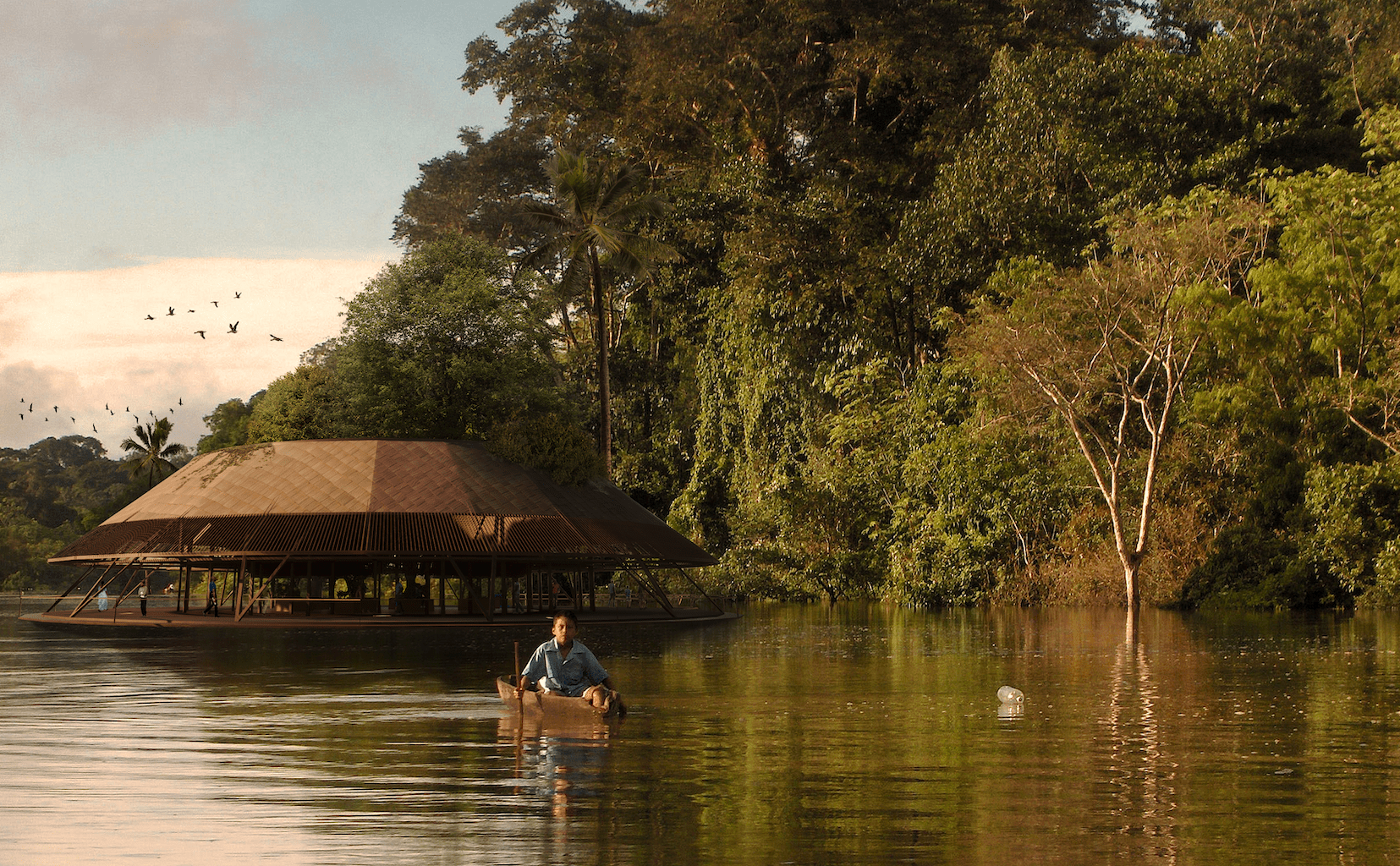Project implementation: Venezuela
Project development: Venezuela
Given the evident and territorialized human impact on much of our societies, which has generated the global climate emergency, the project explores transitional imaginaries, proposing habitability scenarios that recognize the radical interdependence between species and entities. It articulates spatial practices and climate narratives to propose resilient and restorative futures through mestizo ecosystems in territories degraded by extractivism, primarily mining, in the Venezuelan Orinoco-Amazon region.
Based on the contradictions of our present, the research generates hybrid ecosystems: hybrid spatial and climatic models that combine ancestral forms of inhabitation with speculative design strategies and critical ecology. This concept challenges the fragmentation inherent in extractivism and proposes modes of territorial occupation that promote the coexistence of diverse communities, species, and materials, thus fostering relationships of care and regeneration in degraded landscapes.
In the global context and its various crises, the project highlights the need to understand the cultural dimension of this situation and contribute to overcoming the limitations of imagination in the face of the present and the future, through ecotopias.
Technical sheet:
Maximillian Nowotka.
Gabriel Visconti Stopello.
Michelle Isoldi Campinho (collaborator).
Maria Betina Rincón (collaborator)
Jennifer Carmona (contributor).
Contributions from:
Ana María Durán Calisto, Carlos Segura, EcoCiencia (Environmental Foundation), Emiliano Teran Mantovani (sociologist), Helena Carpio (environmental journalist), Instituto del Bien Común (environmental civil association), Luis Felipe Gottopo (anthropologist), Luisa D'Angelo (biologist), Nelifred Maurera Graterol (geographer), Ricardo Avella (architect), SOSOrinoco (advocacy group), Wataniba (socio-environmental group).



